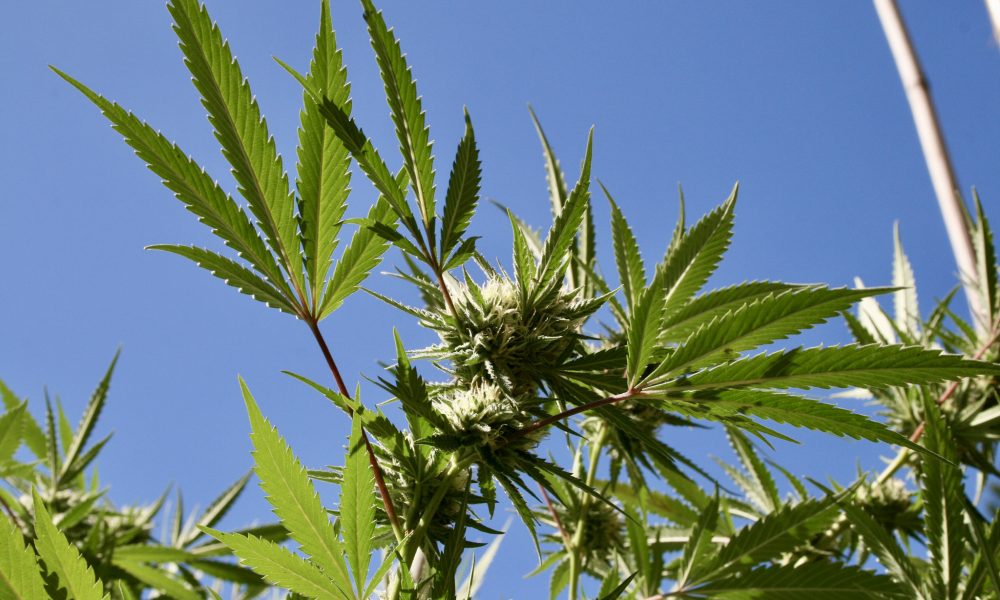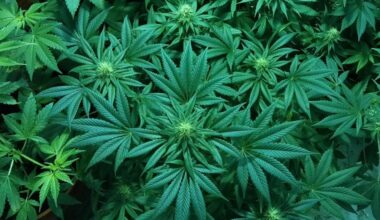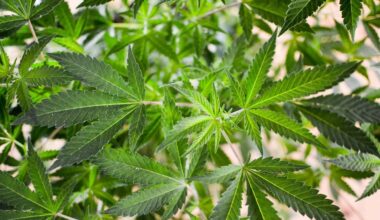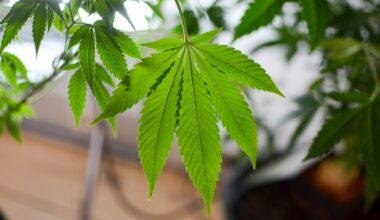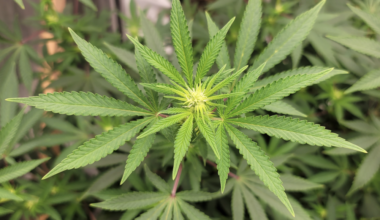“This is a program that, as currently written, is designed to fail.”
By Jerod MacDonald-Evoy, Arizona Mirror
When Arizona voters approved recreational marijuana use in 2020, the new law included provisions that aimed to give the opportunity of a lifetime to people most harmed by the War on Drugs: a chance to win a coveted license to operate a dispensary.
Now, the final licenses to sell marijuana in Arizona are set to be given out through the social equity program, which aims to right the wrongs caused by disproportionate policing of marijuana crimes. They are easily worth millions of dollars—maybe tens of millions—and the system was envisioned as propelling people once arrested for minor marijuana crimes into business selling cannabis.
But some advocates say the reality is that bureaucratic hurdles, corporate greed and a rapidly consolidating marijuana market will drive those profits directly into the hands of large companies intent on limiting competition and capitalizing on the billions of dollars to be made selling cannabis in Arizona.
“This is a program that, as currently written, is designed to fail,” attorney Julie Gunnigle said to Arizona Mirror. Gunnigle up until recently worked for Arizona’s Chapter of NORML, an organization that pushes for the reform of marijuana laws across the United States.
The social equity program, as it was dubbed in Proposition 207, the ballot measure voters approved in 2020 to legalize recreational marijuana, is intended to give minority communities—those historically most impacted by the War on Drugs—the inside track to claiming 26 dispensary licenses.
But the pool of potential social equity dispensary owners is limited by both the voter-approved measure and rules finalized last month by the Arizona Department of Health Services. Applicants must meet three of four criteria:
- Have a low-level marijuana conviction—one that’s been expunged, if it was a felony
- Have a family member with a low-level marijuana conviction
- Live in one of 87 ZIP codes ADHS identified as being “disproportionately impacted by the enforcement of previous Arizona marijuana laws”
- Earn less than 400 percent of the federal poverty limit; for a family of four, that would be a maximum household income of $106,000
And anyone who wants to be entered into the lottery to win a social equity license must pay a non-refundable $5,000 application fee after they take two separate two-day training classes. The deadline to complete those classes was Wednesday, about five weeks after the ADHS rules were announced.
Applications are due by December 1.
Funneling social equity applicants into partnerships with big companies
For Gunnigle, the exorbitant application fee is such a steep barrier that it all but forces would-be applicants to turn to large players in the Arizona cannabis industry for help.
The established marijuana sector is eager to find social equity applicants. Houses in the qualified ZIP codes have been blanketed with mail and door-hangers from large cannabis companies scouring the state for those who qualify.
Along freeways in Phoenix, billboards from large marijuana dispensaries and growers are advertising their intent to help eligible applicants through the process.
Some have even set up websites, such as YourBrightHorizon.com, set up by Copperstate Farms, one of the largest growers of marijuana in the country with a 40-acre operation outside of Snowflake, Arizona.
“The amount of general public knowledge of the program is pretty low,” said Doug Cole, a spokesman for Copperstate Farms. “We are helping applicants succeed and be successful under the social equity program.”
Copperstate has been helping put on free expungement clinics across the state—one of the qualifying criteria for applicants—alongside groups like NORML in order to find qualified applicants, often offering a monetary incentive of up to $500 to people who qualify and refer a friend who qualifies, as well.
“These licenses are worth $10-$15 million dollars before the ink is dry,” said Tom Dean, an attorney who specializes in cannabis.
Copperstate itself recently purchased a dispensary license in Phoenix for $15 million in cash, and established marijuana dispensaries have sold for upwards of $20 million. Arizona dispensaries have reported more than $50 million in sales every month except one since March, and the state is on pace in its first year of recreational marijuana to surpass $1 billion in retail sales. Wall Street analysts predict sales will swell to more than $2 billion in just a few years.
Not only are these the final 26 licenses that will be issued in Arizona, but their owners will be able to sell them—something not allowed for the other licenses issued earlier—making them even more valuable. Dean has been helping guide applicants through the process and said multi-state operators, investor groups and industry groups have all expressed interest in filing as many applications as they can.
Allowing the social equity licenses to be treated like a commodity is a bad thing, Gunnigle said, because it makes it easy for corporate interests to “game” the system and reap all of the profits meant to lift up those who had been oppressed by the system.
“Essentially, you’ve really created a lottery program for 26 people,” Gunnigle said, saying that the people who get these licenses will likely be flooded with inquiries about the licenses, be overwhelmed and likely sell them to the same groups who currently operate the majority of dispensaries in the state.
The rules technically require social equity licenses to be sold to another person or company that meets the ADHS requirements to apply. But Dean said there’s nothing stopping an established cannabis company from striking a deal with an applicant who didn’t get a license and “just creating a subsidiary that complies with that” so they can buy the license.
There’s no going it alone, cannabis industry says
While critics say the system is designed to give large companies an unearned path to profiting off of licenses intended to right a historic wrong, companies like Copperstate Farms say there’s no way the social equity license holders will succeed if they don’t join with experienced partners.
Though legal in Arizona and other states, marijuana is still classified as a Schedule I controlled substance by federal law. One critical effect is that many financial institutions will not give loans or take money from institutions that make their money off marijuana, for fear of being punished by the federal government. That makes getting start-up capital to open a dispensary—which can cost as much as $2 million—difficult for a would-be social equity licensee. And all that would have to be done within 18 months of receiving the licenses under the ADHS rules.
“The cannabis industry is a very regulated business and involves lots of permits and lots of upfront capital,” Cole, the spokesman for Copperstate Farms, said.
Just getting the proper zoning is often difficult in Arizona, with many cities and towns having passed ordinances that disallow dispensaries within their cities boundaries.
“We are experts in doing that, finding those and running those through planning and zoning meetings to get those approvals,” Cole said. And even with the expertise that his company brings, “that is going to be a sprint to get that done in 18 months.”
To Gunnigle, though, the program will not likely meet its goal of helping lift up people who have been harmed by the war on drugs. Likewise, Dean said it would be lamentable if the social equity license all ended up in the control of the big industry players.
“It’s meant to be something that is meant to be a permanent fixture in the Arizona industry,” he said. “It’s meant to be a balance in the industry [to stop] consolidation.”
But some marijuana industry insiders see it a bit differently.
“You don’t see people manufacturing dental floss and selling it at mom-and-pop shops, do you?” Demitri Downing, CEO and founder of the Arizona Marijuana Industry Trade Association, said. “They’re feel-good, nostalgic romantic notions.”
Downing said the presence of outside groups is good for applicants, as it gives them the freedom to choose their partners and get help they need—and also the freedom to sell their license outright for large sums of money.
“Whether they turn around and sell it or not is irrelevant—they benefit either way,” Downing said. “They are members of our community and they will be rewarded.”
This story was first published by Arizona Mirror.
Bipartisan Pennsylvania Senators Announce Medical Marijuana Home Grow Bill
Medical Disclaimer:
The information provided in these blog posts is intended for general informational and educational purposes only. It is not a substitute for professional medical advice, diagnosis, or treatment. Always seek the advice of your physician or other qualified healthcare provider with any questions you may have regarding a medical condition. The use of any information provided in these blog posts is solely at your own risk. The authors and the website do not recommend or endorse any specific products, treatments, or procedures mentioned. Reliance on any information in these blog posts is solely at your own discretion.
